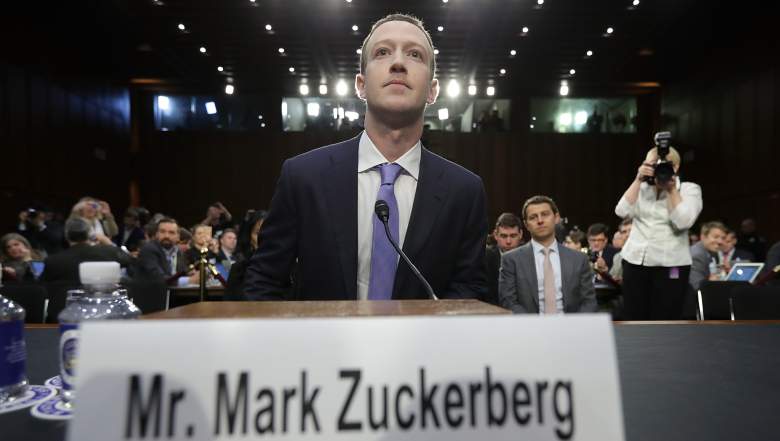
Today Mark Zuckerberg, CEO and co-founder of Facebook, testified to Congress in a hearing titled “Facebook, Social Media Privacy, and the Use and Abuse of Data.” You can watch a full video replay of Zuckerberg’s testimony in one of the two videos below. Today he testified in a joint hearing before two Senate committees: the Senate Judiciary Committee and the Senate Committee on Commerce, Science and Transportation. Tomorrow he will testify before the House Committee on Energy and Commerce at 10:00 a.m. Eastern.
Next is a full video from PBS News Hour:
Sen. Chuck Grassley said in a statement that today’s joint hearing “will explore approaches to privacy that satisfy consumer expectations while encouraging innovation.” He continued: “Social media has revolutionized the way we communicate, using data to connect people from around the world. With all of the data exchanged over Facebook and other platforms, users deserve to know how their information is shared and secured.” Two weeks ago, the FTC announced that it is going to be investigating Facebook’s privacy practices.
Earlier today, The Daily Beast reported that Zuckerberg and Facebook actually knew five years ago that its reverse lookup search feature could be used to harvest the names, profiles, and phone numbers of its users. This is in contrast to Zuckerberg’s testimony prepared for Congress on Wednesday, acknowledging that people had used the reverse-lookup to link people’s public Facebook details to a phone number. But he said Facebook only discovered this feature could be abused two weeks ago and then shut it down.
Today was Zuckerberg’s first time to appear before Congress. He started his testimony by telling Facebook users: “I started Facebook, I run it, and I’m responsible for what happens here.” He said it was the company’s fault for not protecting its users’ privacy. “It’s clear now that we didn’t do enough to prevent these tools from being used for harm as well. That goes for fake news, foreign interference in elections, and hate speech, as well as developers and data privacy. We didn’t take a broad enough view of our responsibility, and that was a big mistake. It was my mistake, and I’m sorry.”
Later, he said that long privacy policies are very confusing and the longer they are, the fewer people will read it. So creating longer policies probably isn’t the right approach, he said.
Sen. Nelson mentioned how one person on Facebook’s staff suggested having users pay to not get advertising. Zuckerberg said users can already turn off third party information, but people especially don’t like irrelevant ads. “People would rather have us show relevant content … than not.” But they can’t stop running ads altogether, as that’s their business model. He said an ad-supported service is best for connecting people, but they don’t currently offer a way to pay to stop having ads.
Around 6 p.m. Eastern, hours into the testimony, Zuckerberg said that Facebook does not listen to audio on people’s phones and use that to serve ads. However, many Facebook users disagree with this and feel like their own experiences show otherwise.
About 87 million Facebook users were exposed to Cambridge Analytica. If you want to know if you were one of them, you can visit a page on Facebook’s help center to find out. Even if you didn’t use the “This Is Your Digital Life” app, if your friends did your information might have still been exposed.
Zuckerberg also said that in about five years, he is confident they’ll have AI tools to better flag hate speech. Until AI tools can automate this, Facebook will have a higher error rate catching hate speech than he’s comfortable with.
One of his greatest regrets about Facebook is being slow to identify Russian use of Facebook during the campaign, he told Sen. Feinstein. And as far as automated bots, he said Facebook doesn’t allow fake accounts and tries to identify and remove them. He said that so far, they’ve removed tens of thousands of fake accounts.
Later he told Sen. Hatch, “There will always be a version of Facebook that is free.” But does this mean there will be paid versions one day too?
If all these privacy concerns are making you wonder what other options are out there besides Facebook, Heavy answers all your questions about Facebook alternatives in the story below.